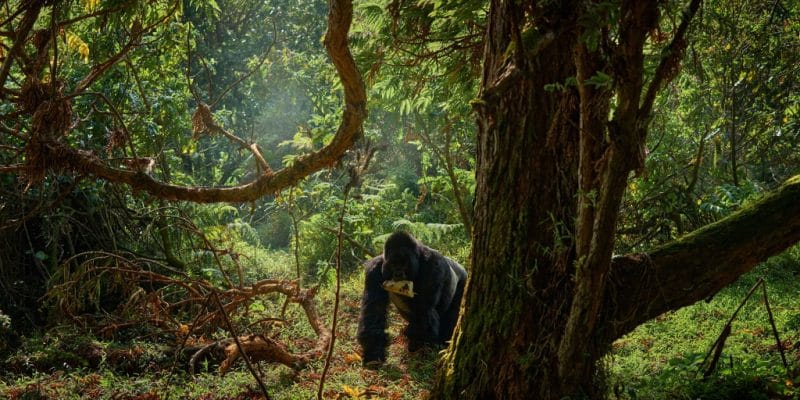In Congo, the Djéké triangle, known for its rich biodiversity, has just been integrated into the Nouabalé-Ndoki National Park in the north-west of the country. The aim is to preserve its "intact" forest, which is home to critically endangered western lowland gorillas.
The area of the Nouabalé-Ndoki National Park is being increased by 95 km2. The Congolese government decides to add the Djéké triangle, which scientists consider to be one of the Congo’s biodiversity hotspots. The Djéké triangle is home to a large population of western lowland gorillas. This primate is listed as Critically Endangered by the International Union for Conservation of Nature (IUCN).
The Western Lowland Gorillas, which once roamed Angola, Cameroon, Gabon, Equatorial Guinea, Central African Republic (CAR) and the Republic of Congo, are particularly impacted by poaching due to increasing demand for bushmeat, disease and habitat loss, poor law enforcement, corruption and much easier access to previously isolated habitats.
An important site for research
The Djéké triangle is also an area of global importance for the study of the ecology and behaviour of western lowland gorillas, as it is home to Mondika, one of the oldest long-term research sites for the species. “Since 1995, three groups of gorillas have been habituated to human presence around Mondika, allowing direct observations of the gorillas in their natural environment. This has enabled us to collect data continuously for 25 years, and to make significant progress in our knowledge of this species, the least known of the great primates,” says the Wildlife Conservation Society (WCS), which is responsible for conserving the biodiversity of the Nouabalé-Ndoki National Park.
Read also- CONGO: Olam and WCS agree on biodiversity around Nouabalé-Ndoki Park
By integrating the Djéké triangle into the Nouabalé-Ndoki National Park, the Congolese government also aims to conserve the forests that now cover 60% of its territory. The management plan, approved by the Congolese authorities on Friday 10 February 2023, also provides for the creation of a community sustainable use zone within the Djéké Triangle, where locals will be able to continue harvesting non-timber products, including honey, leaves, mushrooms and fishing. However, the carrying of firearms remains prohibited in the area.
Integrating local communities in biodiversity conservation
At the end of its community consultations, WCS identified 13 villages that are integrated into the Djéké triangle management plan. The integration of local communities into this conservation initiative is in line with “established standards for obtaining Free, Prior and Informed Consent (FPIC) from indigenous peoples and local communities. The communities themselves have identified areas of cultural and economic importance within the Djéké Triangle,” says WCS.
In recent years, several human rights organisations and the media have denounced the situation of certain populations, particularly pygmies, who are sidelined in certain biodiversity conservation programmes in the Congo Basin. In 2019, the American news site BuzzFeed accused the World Wildlife Fund (WWF) of funding and working with anti-poaching guards who allegedly tortured and killed people in parks in Asia and Africa. This information has reignited the debate on green colonialism in Africa.
Jean Marie Takouleu







